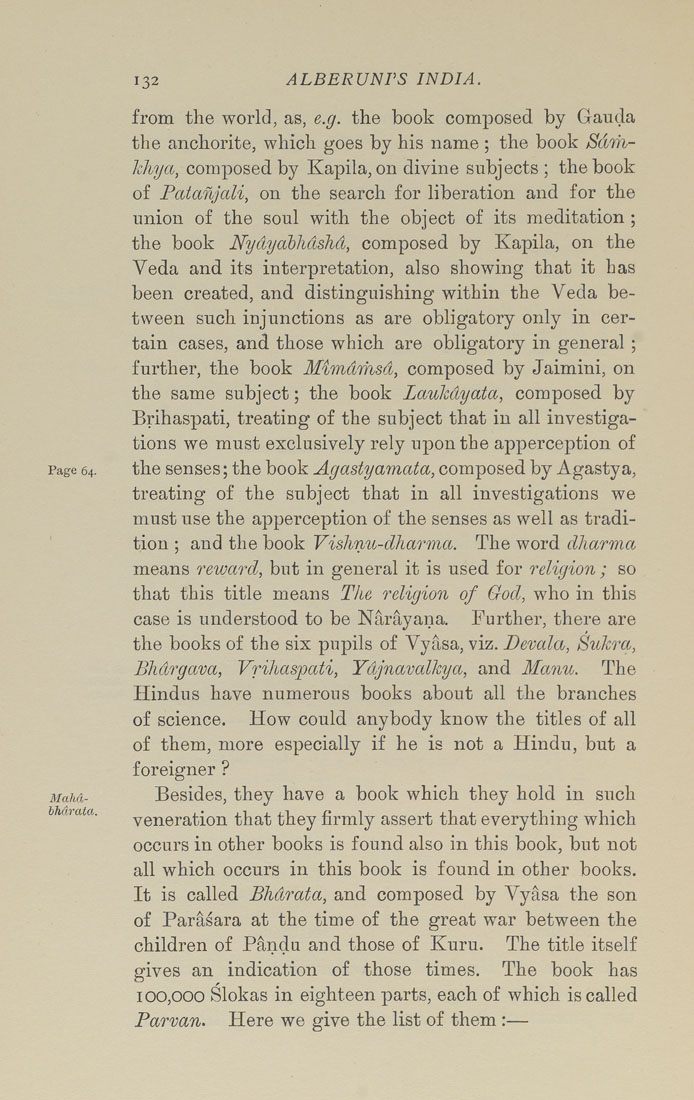Bīrūnī, Muḥammad ibn Aḥmad, Alberuni's India (v. 1)
(London : Kegan Paul, Trench, Trübner & Co., 1910.)
|
||
|
|
|
|
| Page 132 |

132 ALBERUNPS INDIA. from the world, as, e.g. the book composed by Gauda the anchorite, which goes by his name ; the book Sdm¬ khya, composed by Kapila, on divine subjects ; the book of Patanjali, on the search for liberation and for the union of the soul with the object of its meditation ; the book Nydyabhdshd, composed by Kapila, on the Veda and its interpretation, also showing that it has been created, and distinguishing within the Veda be¬ tween such injunctions as are obligatory only in cer¬ tain cases, and those which are obligatory in general ; further, the book Mimdmsd, composed by Jaimini, on the same subject; the book Laukdyata, composed by Brihaspati, treating of the subject that in all investiga¬ tions we must exclusively rely upon the apperception of Page 64. the senses; the book Agastyamata, composed by Agastya, treating of the subject that in all investigations we must use the apperception of the senses as well as tradi¬ tion ; aud the book Vishnu-dharma. The word dharma means reward, but in general it is used for religion; so that this title means Tlie religion of God, who in this case is understood to be Narayana. Further, there are the books of the six pupils of Vyasa, viz. Devala, Sukra, Bhdrgava, Vrihaspati, Ydjnavalkya, and Manu. The Hindus have numerous books about all the branches of science. How could anybody know the titles of all of them, more especially if he is not a Hindu, but a foreigner ? Mahi- Besides, they have a book which they hold in such veneration that they firmly assert that everything which occurs in other books is found also in this book, but not all which occurs in this book is found in other books. It is called Bhdrata, and composed by Vyasa the son of Parasara at the time of the great war between the children of Pandu and those of Kuru. The title itself gives an indication of those times. The book has 100,000 Slokas in eighteen parts, each of which is called Parvan. Here we give the list of them :— bhdrata. |
| Page 132 |







